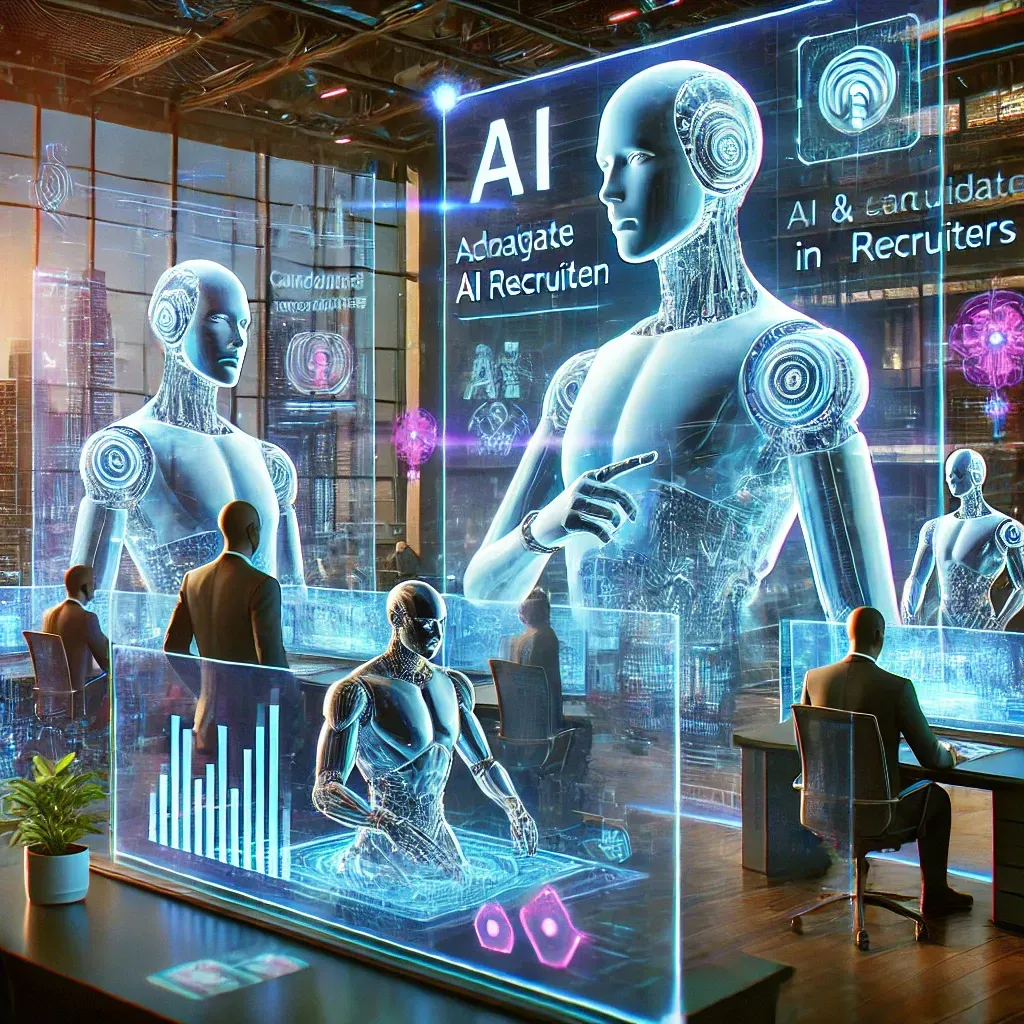
The Future of Recruitment – Bold Predictions for AI Evolution
The Future of Recruitment – Bold Predictions for AI Evolution

Introduction: Gazing into the Future
As technology continues its relentless evolution, artificial intelligence (AI) is poised to revolutionize recruitment, fundamentally transforming how organizations attract, assess, and hire talent. From hyper-personalization to predictive hiring and immersive experiences, the recruitment industry is on the verge of a seismic shift. Preparing for these changes requires understanding emerging trends and strategically adapting to them.
A Gartner survey revealed that 77% of organizations believe AI will significantly disrupt traditional recruitment practices by 2030. This chapter explores bold predictions for the future of AI in recruitment, enriched with real-world examples and actionable insights to help readers stay ahead of the curve.
14.1 Hyper-Personalization in Candidate Engagement
The future of recruitment lies in delivering uniquely tailored experiences to candidates.
Prediction:
AI will enable hyper-personalized interactions throughout the candidate journey. By analyzing vast amounts of data—such as career history and browsing habits—AI will create experiences that resonate on an individual level.Example:
AI-driven recruitment platforms will provide job recommendations tailored to candidates’ skills, aspirations, and preferences. A case study from LinkedIn Talent Blog revealed that personalized job suggestions increased application rates by 38%.Impact:
Companies investing in hyper-personalization will significantly boost candidate satisfaction and engagement, gaining a competitive edge in attracting top talent.
14.2 Predictive Workforce Planning
Predictive analytics will redefine how organizations anticipate workforce needs.
Prediction:
AI tools will predict future hiring requirements with remarkable accuracy, enabling companies to anticipate market shifts and address skill shortages proactively.Example:
A multinational retail chain implemented AI-driven workforce planning tools to predict seasonal hiring demands, resulting in a 25% reduction in recruitment costs and 15% faster onboarding (Retail HR Journal).Impact:
Predictive analytics will help organizations reduce inefficiencies and ensure business continuity in an ever-changing market.
14.3 Immersive Virtual Reality Experiences
Virtual reality (VR) is set to transform candidate assessments and onboarding.
Prediction:
VR will become a standard recruitment tool, offering immersive job previews and interactive simulations to evaluate candidates effectively.Example:
A logistics firm used VR assessments for warehouse roles, allowing candidates to experience job scenarios virtually. This innovative approach reduced turnover by 20% due to better candidate-role alignment (TechEd Journal).Impact:
VR-based assessments will improve decision-making for both recruiters and candidates, boosting satisfaction and retention while showcasing company innovation.
14.4 Ethical AI and Trust in Recruitment
Ethical considerations will become central to AI adoption in recruitment.
Prediction:
Candidates will demand greater transparency and fairness in AI-driven hiring processes, making ethical AI practices essential to recruitment strategies.Example:
A financial services company adopted explainable AI to provide candidates with clear insights into hiring decisions, increasing candidate trust and application rates by 20% (Forbes).Impact:
Organizations prioritizing ethical AI will enhance their employer brand and attract diverse, high-quality talent pools.
14.5 Global Talent Acquisition at Scale
AI will eliminate traditional barriers to global recruitment.
Prediction:
Advanced AI systems will streamline multilingual communication, cross-border compliance, and cultural adaptation, enabling organizations to tap into global talent markets seamlessly.Example:
A tech giant employed AI chatbots to engage multilingual candidates, doubling their international hires within a year (Global Recruitment Insights).Impact:
Global AI-driven recruitment will foster diversity, innovation, and agility, ensuring competitiveness in a globalized marketplace.
14.6 Continuous Learning and Adaptive AI Systems
Adaptive AI will keep recruitment strategies ahead of industry trends.
Prediction:
AI systems will continuously learn and refine their capabilities, staying aligned with evolving market demands and industry innovations.Example:
An IT company used an adaptive AI recruitment platform to identify emerging roles in cybersecurity and recommended targeted upskilling programs for recruiters, reducing hiring gaps by 30% (Gartner Recruitment Insights).Impact:
Continuous learning ensures AI tools remain relevant, empowering organizations to navigate complex talent landscapes effectively.
14.7 AI-Driven Collaboration Across Industries
Collaborative AI initiatives will accelerate recruitment innovation.
Prediction:
Cross-industry partnerships will drive the development of shared AI platforms and solutions to address common recruitment challenges.Example:
A consortium of healthcare providers and tech firms developed an AI-based credential verification system, streamlining hiring processes across sectors (Healthcare Hiring Journal).Impact:
Collaborative efforts will standardize best practices, improve efficiencies, and encourage innovation across industries.
Summary: Embracing the Future of Recruitment
The future of recruitment lies at the intersection of technology and human ingenuity. By leveraging AI advancements—such as hyper-personalization, predictive analytics, and ethical practices—organizations can navigate a rapidly evolving hiring landscape. This chapter provides a forward-looking perspective, equipping recruiters to lead with innovation, adaptability, and integrity in the AI-driven era.
